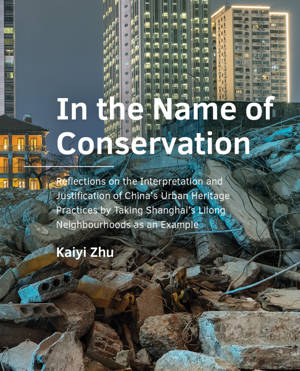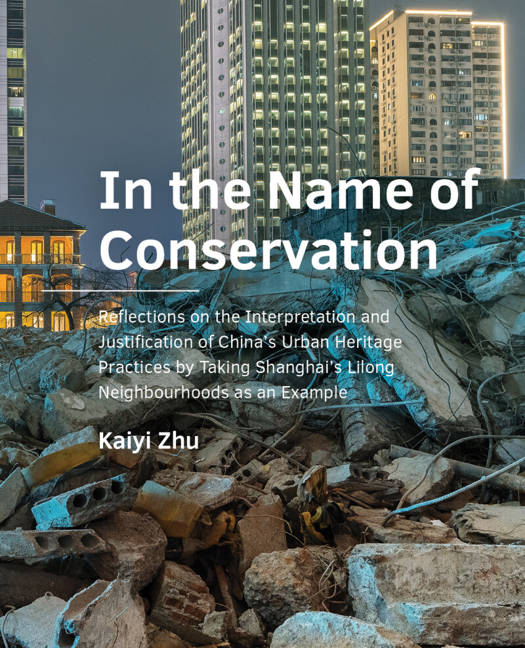
- Afhalen na 1 uur in een winkel met voorraad
- Gratis thuislevering in België vanaf € 30
- Ruim aanbod met 7 miljoen producten
- Afhalen na 1 uur in een winkel met voorraad
- Gratis thuislevering in België vanaf € 30
- Ruim aanbod met 7 miljoen producten
Zoeken
In the Name of Conservation
Reflections on the Interpretation and Justification of China’s Urban Heritage Practices by Taking Shanghai’s Lilong Neighbourhoods as an Example
Kaiyi Zhu
€ 29,95
+ 59 punten
Omschrijving
This thesis investigates the introduction, adaption, and implementation of the modern concept of heritage conservation in modern China after the opening of its treaty ports. Through an analysis of the different layers of disseminating and receiving knowledge in transnational exchanges, it explicitly points out the divergence between the Eurocentric concept of conservation and the Chinese tradition of treating historic buildings and sites. As a result of the complexity of understanding and adapting an imported idea, the heritage discourse in China is characterised by its own ambiguity. Conservation of modern heritage, in particular those built under colonial power, has seen conflicts of perceptions between conservation planning and interest-led practice. A progressive legislative framework for heritage conservation has had a limited binding effect on stakeholders’ actions to protect listed immovable built cultural heritage sites from artificial damage in China’s contemporary urban practices. By analysing various actors’ interpretations and expressions of the concept of “conservation” (known as “保护” in Chinese) derived from different temporalities, it explores the causes and effects of heritage strategies and approaches created by individuals, groups, and the state apparatus. Theoretically, it challenges the local acceptability of classic conservation principles that are primarily based on European thoughts and cultural background. Practically, it provides adequate clues for a multi-faceted consideration of listed heritage sites in future development. It highlights the significance of creating a powerful local narrative under the authoritative heritage discourse at a crossroads of ongoing globalisation and growing nationalism.
Specificaties
Betrokkenen
- Auteur(s):
- Uitgeverij:
Inhoud
- Aantal bladzijden:
- 428
- Taal:
- Engels
- Reeks:
Eigenschappen
- Productcode (EAN):
- 9789463666503
- Verschijningsdatum:
- 16/01/2023
- Uitvoering:
- Paperback
- Afmetingen:
- 191 mm x 235 mm
- Gewicht:
- 986 g

Alleen bij Standaard Boekhandel
+ 59 punten op je klantenkaart van Standaard Boekhandel
Beoordelingen
We publiceren alleen reviews die voldoen aan de voorwaarden voor reviews. Bekijk onze voorwaarden voor reviews.











